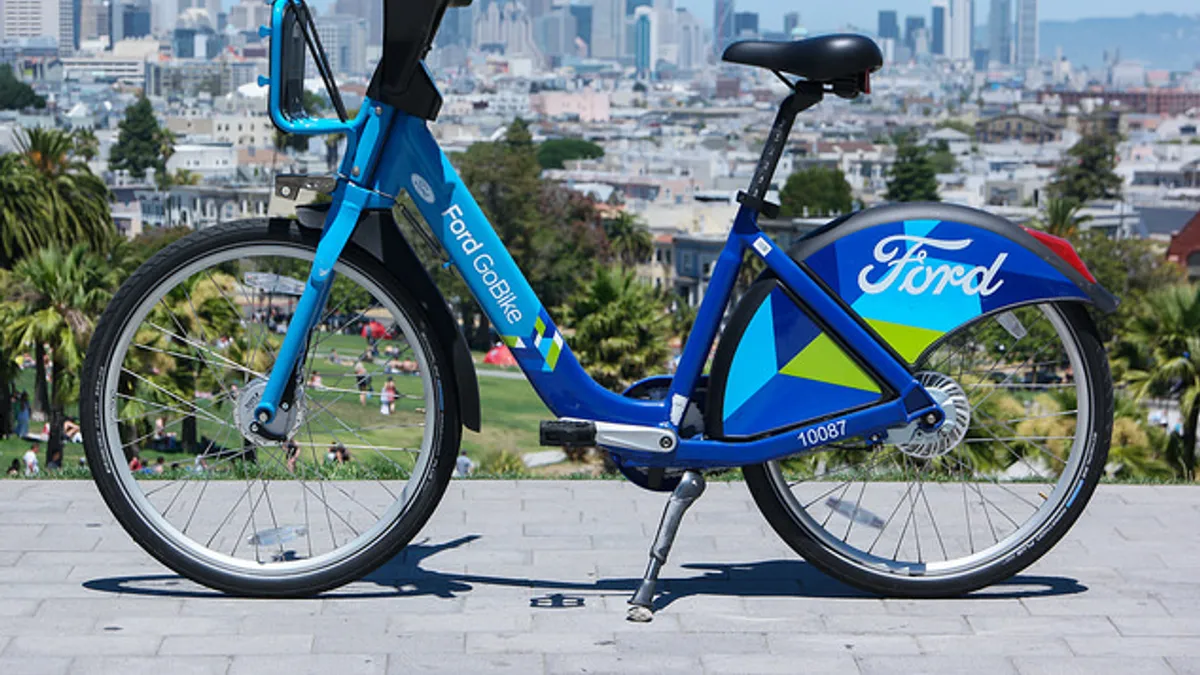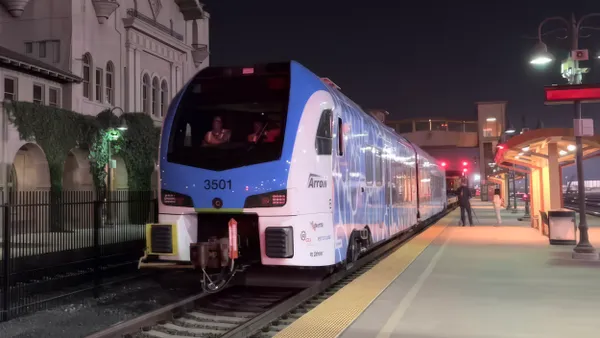Dive Brief:
- San Francisco may deny funding for a free bike-share program to benefit low-income students at San Francisco State University (SFSU) because of the program's newfound affiliation with ride-share company Lyft, the San Francisco examiner reports.
- SFSU had asked the transportation authority to contribute $56,000 toward a two-year pilot program that would give low-income students free memberships for the city's Ford GoBike bike-share program. The funding would pay for up to 550 memberships and 300 single-month passes.
- As of last summer, the San Francisco County Transportation Authority (SFCTA) board has not allowed taxpayer money to benefit Uber and Lyft, citing concern about the companies' lack of sharing trip data with the city that reportedly could ease traffic congestion. But this month Lyft bought Motivate, the company that runs the city's bike-share program, prompting board members to consider rejecting the bike-share funding because it would entail taxpayer money going to Lyft.
Dive Insight:
City leaders' desire to stand firm against funding ride-share companies who refuse to share potentially valuable data could be viewed as admirable. But in cases when residents — in this case, low-income residents — suffer, standing strong on non-regulatory precedents comes off as more petty and merely a tit-for-tat.
Despite both companies being headquartered in San Francisco and the city being friendly to startups, the parties have had a contentious past. Last year the city requested Lyft and Uber share data on various aspects of their businesses, such as how many vehicles are in the streets and when, driving practices, driver training and driver incentives. The companies declined, but the SFCTA shared its own data about ride-share companies, including that ride-share vehicles make about 12 times the number of taxi trips within the city, that they represent about 15% of all vehicle trips, and they comprise up to 26% of vehicle trips during peak hours. This year the city attorney subpoenaed Uber and Lyft for information on driver pay and benefits.
Another controversial conflict between the companies and the city took place in July 2017 when SFCTA decided not to include Uber and Lyft in a program that provides emergency rides home for San Francisco workers. The program allows any worker who uses a sustainable commuting option — public transit, carpooling, walking and biking — to submit up to four annual reimbursements of up to $150 to get home from work if they have a personal or family emergency. Last summer, SFCTA decided to no longer allow ride-sharing to be part of the program, although taxis are still allowed. That decision led to the precedent of not giving taxpayer funds to ride-share companies. Like the current bike-share controversy, the emergency ride home decision appeared to take away a viable transportation option from people in need, especially considering the Department of Transportation indicated 78% of emergency transportation rides previously were completed through ride-sharing.
Some city supervisors did note the free bike-share program might be a case to break with the previous policy related to Uber and Lyft. But others still don't want Lyft's Motivate to benefit, claiming it will give the ride-share company free advertising, or that the company itself should step up and offer free service to low-income students. Leaders decided to table a decision about funding the free bike-share program until they receive more information.











